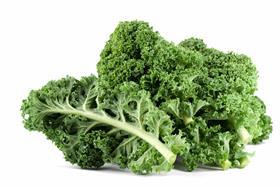
Research released by the University of Warwick in July revealed that eating more fruit and veg can substantially increase your psychological well-being. And consumers are not the only ones in the vegetable supply chain with smiles on their faces.
The industry is in largely positive mood following year-on-year market growth of £50.5 million [KWP 52 w/e 17 July 2016]. But the supermarket price war continues to make life tough for growers.
For several years now, health has been driving increased vegetable consumption. In 2014 there were calls for the NHS to extend 5 A DAY guidelines to 10 A DAY, and in the past five years trends like green smoothies and spiralisation have encouraged consumers to eat vegetables in creative new ways.
Jack Ward, chief executive of the British Growers’ Association, says: “There have been moves towards a more balanced diet, involving a higher percentage of vegetables. People are beginning to get the health message about the need to eat more fresh produce.” Kantar’s figures back this up, as 43 per cent of the time vegetables were eaten ‘to get a portion of veg’, while 29 per cent of servings were consumed for their health benefits.
Brassicas in particular – the main contributor to growth in the vegetable category – have been successfully marketed for their health-giving properties. Kale, which this year broke into the FPJ’s list of the 50 best-selling fresh products, has seen the biggest rise. Its retail value rocketed by almost 32 per cent, with £32.1m of the vegetable sold by British retailers. Its well-documented health benefits include being high in iron and vitamin K, which protect against various cancers. Celebrity chefs such as Jamie Oliver have been keen to promote the product.
Martin Tate, commercial director of Lincolnshire Field Products, which grows the brassica, adds that, beyond the positive exposure of its health benefits, the continuous availability of high quality product has been key to success. “Kale is pretty much guaranteed to be available 52 weeks a year and the quality is now among the best,” he says.
Broccoli has also seen sales growth, but supply is short in Cornwall at present due to difficult growing conditions. Colin Putt, sales manager at Total Produce Cornwall, reports that in foodservice Calabrese has doubled in price in the space of a week. In retail, however, low prices have driven growth in broccoli sales. The brassica is currently priced at 50p or less in Asda, Sainsbury’s, Lidl and Aldi.
Other vegetables, such as old potatoes, could do with a marketing boost. “There is a continued requirement to promote the health benefits, versatility and potential of potatoes as these represent the key barriers to purchase for the majority of customers,” says George Christoudias, marketing director at Branston. The crop must do more to appeal to health conscious younger consumers, it seems. Adults in the 25-34 age bracket are 13 per cent less likely to choose potatoes than another vegetable.
But, beyond health and marketing, price decreases have been key to driving volume sales – particularly in carrots, which are among the most heavily discounted products. Low prices are, of course, a major reason why Aldi and Lidl remain the strongest performers in vegetables, according to Kantar data. Lidl’s Pick of the Week deal and Aldi’s Super 6 have proved popular with consumers and carrots are often included in these offers.
This has been positive for customer penetration, but bad for carrot growers’ returns. Value sales fell by 6.5 per cent, while volumes increased by 6.1 per cent in the 52 weeks to 22 May. “All the other retailers are trying to keep up with the discounters,” said Rodger Hobson, chair of the Carrot Growers’ Association, who warned of the detrimental impacts of the supermarket price war.
“Life is very tough for growers at the moment,” adds Ward. And Morrisons’ announcement this month that over 1,000 products would be reduced in cost will create even more downward price pressure. But in foodservice, higher-end products and heritage varieties are selling well. “Heritage carrots are really popular now,” says Putt. “They have been well promoted on TV. People are realising there are lots of new products available now that they never knew existed before.”
In terms of imports, Putt adds that the Russian embargo on food imports has benefited his company by bringing down the price of Dutch imports. “Last year Holland had nowhere to send their produce and so the prices were a lot cheaper,” he says.
This year Dutch prices have risen and post-Brexit devaluation of the pound has pushed up vegetable import prices across the board. Growers will be hoping retail prices go the same way.



